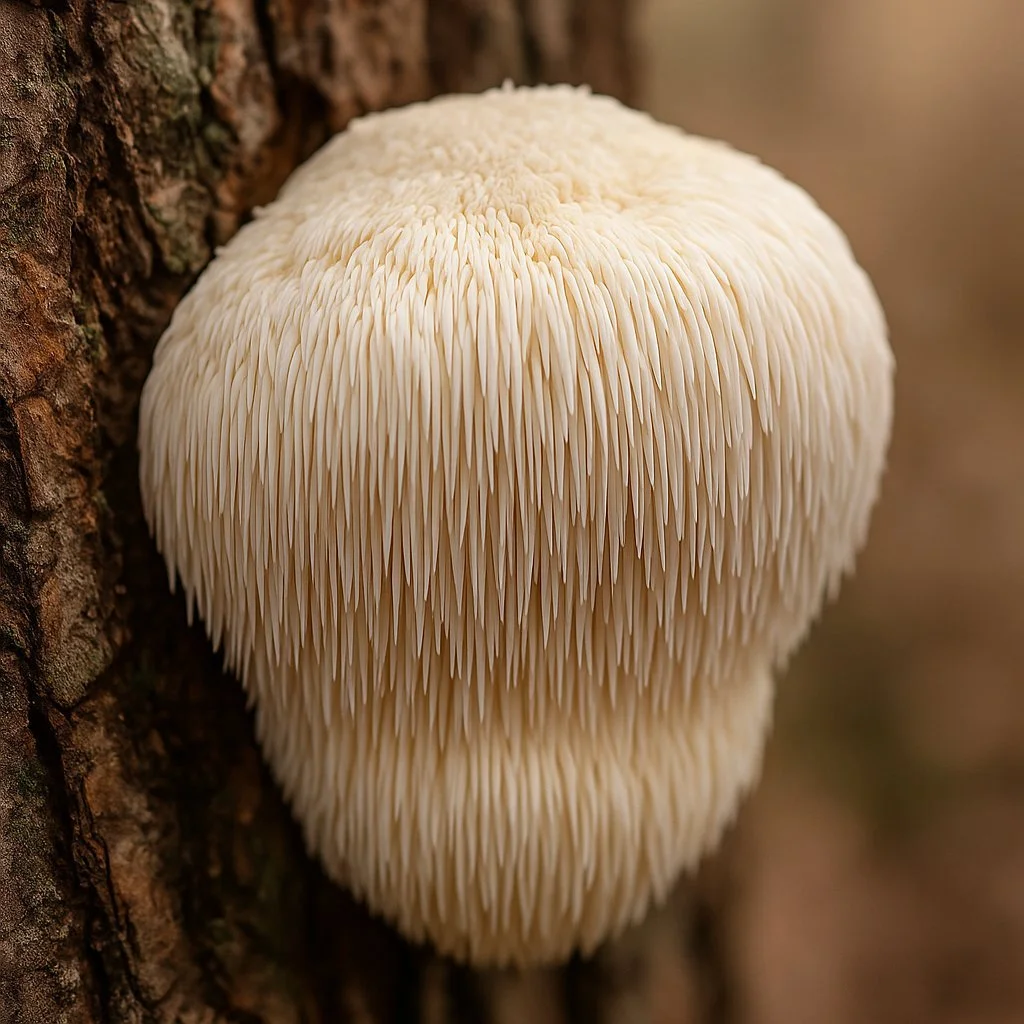Lion’s Mane Mushroom: Nature’s Brain Booster Backed by Science
Lion’s Mane mushroom (Hericium erinaceus) is quickly becoming one of the most sought-after nootropics in the wellness world—and for good reason. From improving memory to reducing inflammation, this shaggy, brain-like fungus offers a spectrum of health benefits supported by modern science. Below, we break down everything you need to know.
What Is Lion’s Mane Mushroom?
Lion’s Mane is a medicinal mushroom known for its long, white, hair-like spines—resembling a lion’s mane. Used for centuries in traditional Chinese and Japanese medicine, it’s gaining global popularity as a functional food and dietary supplement.
What Are the Benefits of Lion’s Mane?
Here are the top science-backed benefits:
1. Supports Brain Health & Cognitive Function
Lion’s Mane promotes nerve growth factor (NGF), a protein essential for the growth and survival of neurons.
Studies show supplementation may improve memory, focus, and mental clarity, especially in older adults and people experiencing mild cognitive impairment.
Study: Mori et al., 2009, Phytotherapy Research – significant cognitive improvement in adults over 50 with mild memory problems.
2. Reduces Symptoms of Anxiety and Depression
Compounds in Lion’s Mane, such as hericenones and erinacines, appear to have neuroprotective and anti-inflammatory effects that may support mood regulation.
Animal studies (e.g., Zhang et al., 2020) have shown reduced depressive behavior and improved hippocampal function.
3. Boosts Immune System
Enhances gut immunity by increasing the activity of intestinal immune cells.
Contains powerful antioxidants and β-glucans to help reduce oxidative stress.
4. May Protect Against Neurodegenerative Diseases
Lion’s Mane shows potential in slowing progression or aiding treatment of Alzheimer’s, Parkinson’s, and other forms of dementia, though human studies are still limited.
5. Supports Gut and Heart Health
Prebiotic effects may improve gut microbiome diversity.
Early research suggests cholesterol-lowering and anti-inflammatory effects that may benefit cardiovascular health.
Frequently Asked Questions (FAQs)
Is Lion’s Mane safe to take daily?
Yes, it is generally well-tolerated in doses ranging from 500 mg to 3,000 mg per day. Always start small and check with your healthcare provider if you’re taking medications or have allergies to fungi.
How long does it take for Lion’s Mane to work?
Most users report noticeable cognitive or mood benefits after 2–4 weeks of daily use.
Can I take it with coffee?
Absolutely! Many people blend Lion’s Mane powder into coffee or lattes for a caffeine-balanced nootropic boost.
What’s the best way to take Lion’s Mane?
You can consume it as:
Powdered extract (in smoothies or drinks)
Capsules or tinctures (for convenience)
Culinary mushrooms (sautéed or roasted—delicious and functional!)
Final Thoughts: Should You Try It?
If you're looking for a natural supplement to support mental clarity, stress resilience, and brain longevity, Lion’s Mane is one of the most compelling nootropics available—especially when sourced organically and third-party tested.
🛒 Ready to Try Lion’s Mane?
We recommend looking for:
Fruit body extracts (not mycelium on grain)
Dual-extraction methods (alcohol + hot water)
Certified organic, non-GMO, and lab-tested products
Sources & Further Reading
- Mori, K., et al. (2009). Improvement of cognitive functions by oral intake of Hericium erinaceus . *Phytotherapy Research.*
- Zhang, C., et al. (2020). Hericium erinaceus modulates depression-like behavior in mice via hippocampal neurogenesis . *Journal of Ethnopharmacology.*
- Wong, K.H., et al. (2022). Neurohealth Properties of Lion’s Mane: A Systematic Review of Clinical and Preclinical Studies . *Frontiers in Pharmacology.*
- Friedman, M. (2016). Mushroom Polysaccharides as Nutraceuticals for Disease Prevention . *Journal of Agricultural and Food Chemistry.*
- Beshara, M., et al. (2019). Antioxidant Effects of Hericium erinaceus in Aging and Cognitive Decline . *Antioxidants.*

